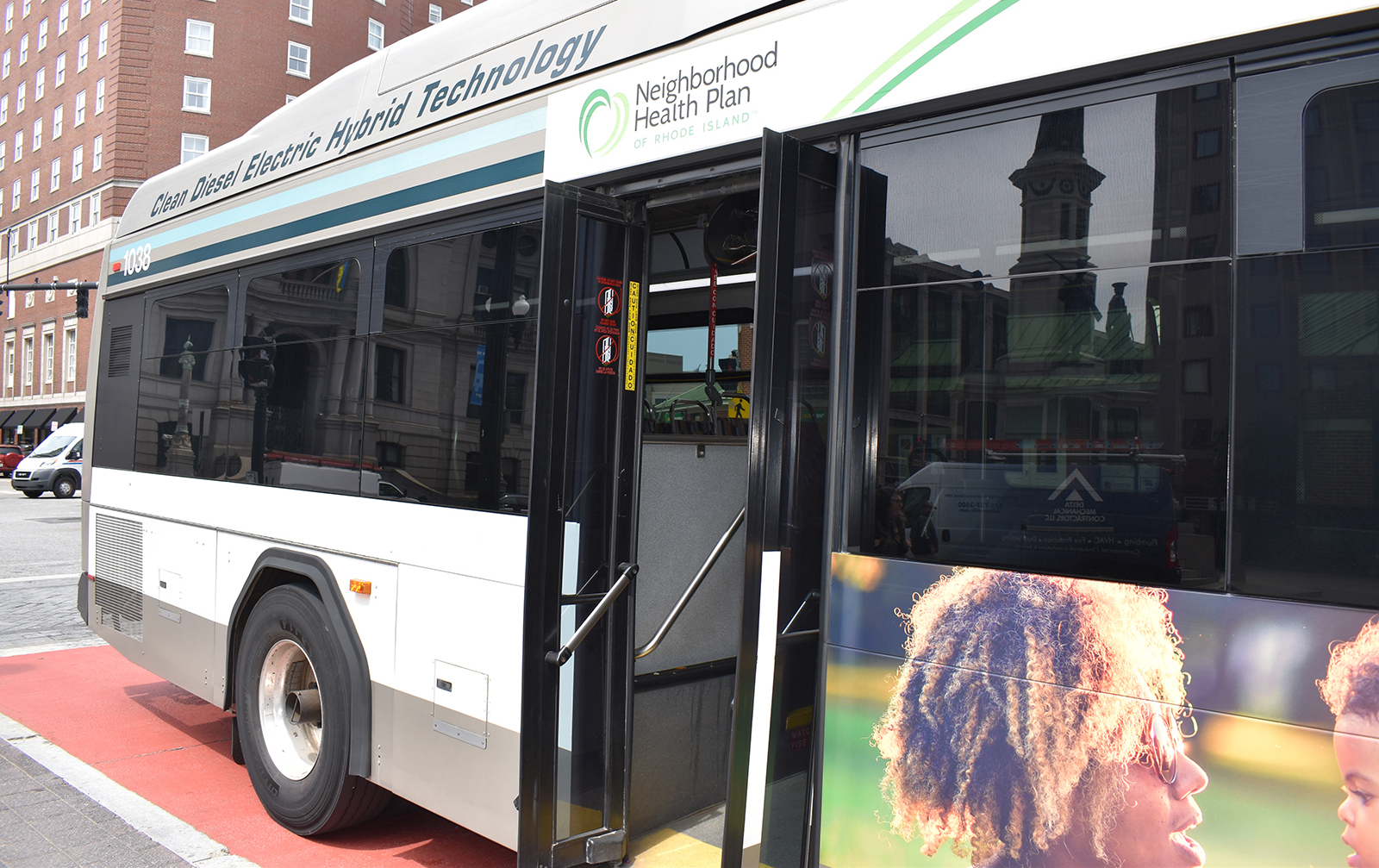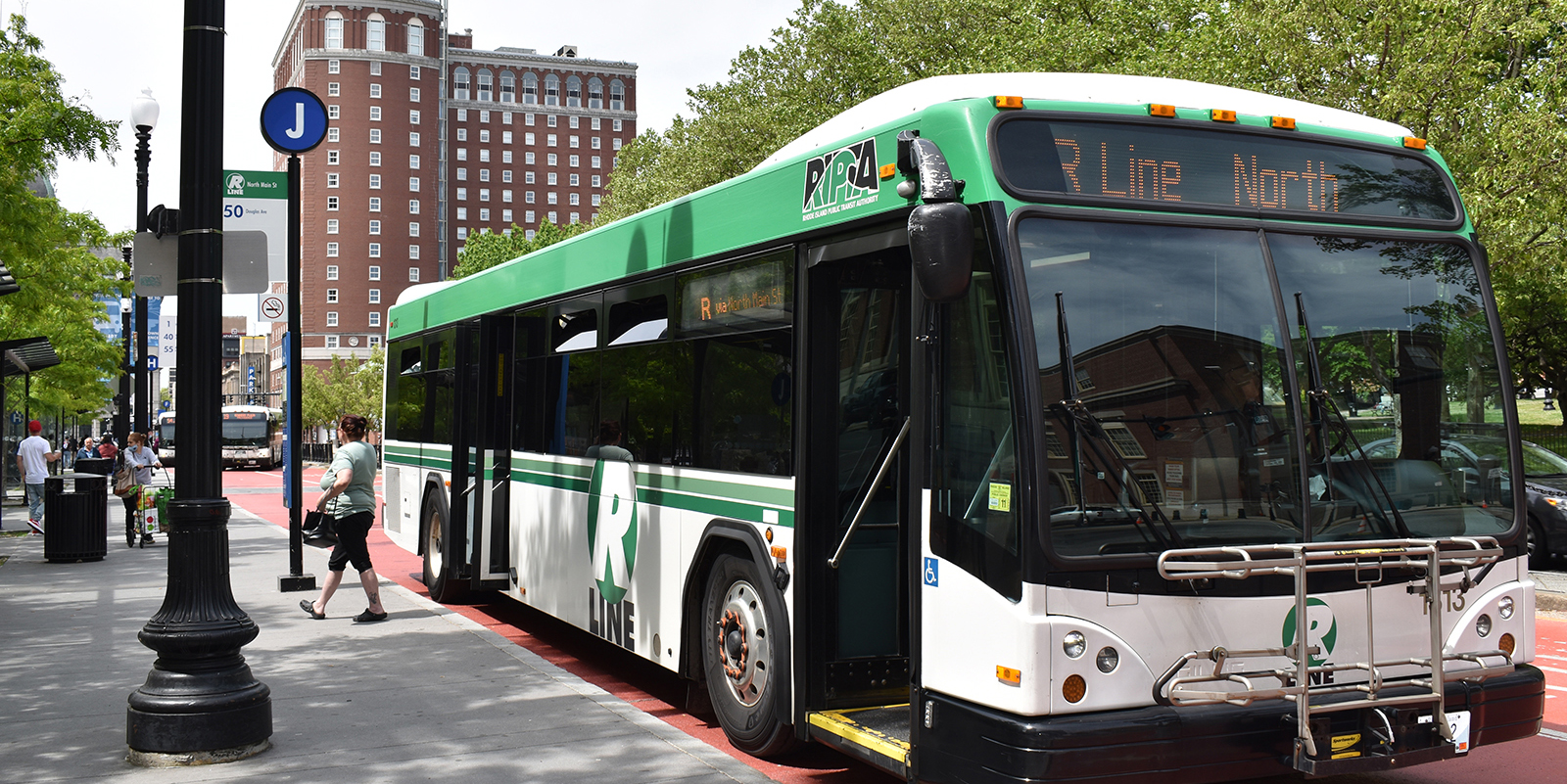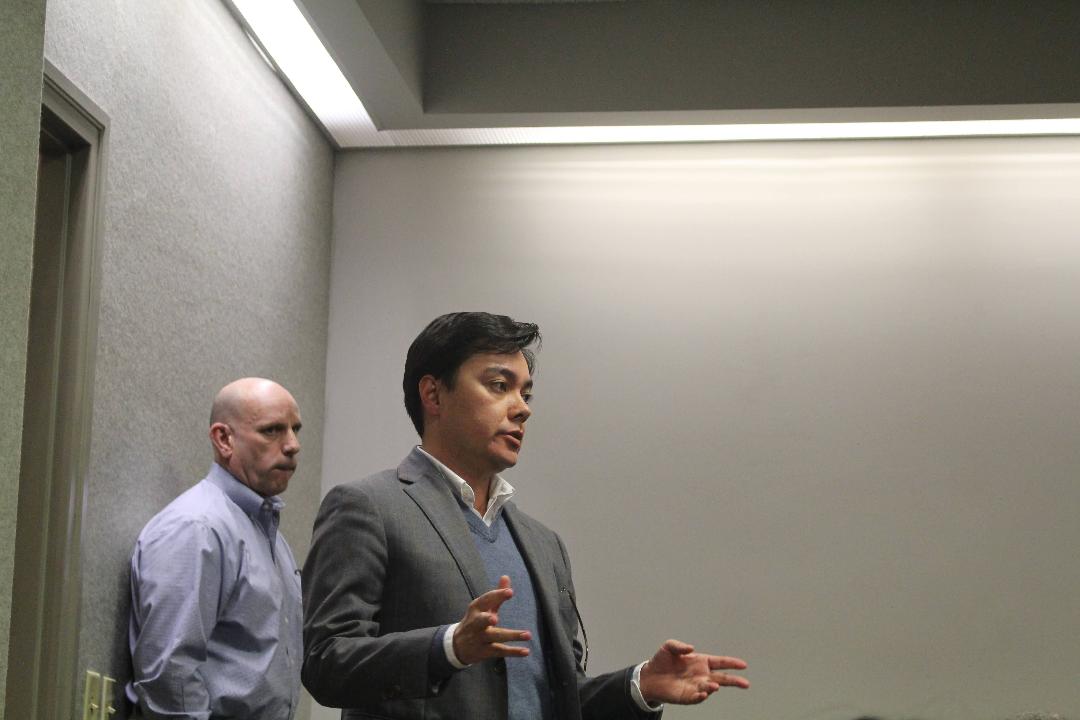What Is a Mileage-Based User Fee? And Could It Replace R.I.’s Gas Tax?
March 24, 2024
PROVIDENCE — The state uses its motor vehicle fuel tax to fund a lot, from the Rhode Island Public Transit Authority to the maintenance and repair of state roads.
The state’s gas tax is 34 cents a gallon, plus an additional half a cent charged for an environmental protection regulatory fee. The state Department of Transportation and RIPTA receive the largest portions of that revenue, 53% and 28%, respectively.
Although the gas tax has long helped fund both agencies and their missions, experts and researchers have also warned for decades that it’s not a stable source of revenue and that it will become obsolete as more and more electric vehicles get on the road.
At a recent joint State Planning Council (SPC) and Transportation Advisory Committee (TAC) meeting, Patricia Hendren, executive director of the Eastern Transportation Coalition, presented her research on a mileage-based user fee (MBUF) to state officials, discussing how the fee could make up for gas tax losses in the future.
Although just one of several potential alternatives to gas taxes, MBUF is currently being piloted in areas around the country, Hendren said. Rhode Island officials listened and asked questions to see whether it might be tested here, too.
What’s wrong with the gas tax?
A gas tax is based on the gallons of gas purchased in Rhode Island. That source isn’t stable, and will continue to dwindle in the future for a few reasons, Hendren explained.
Over time, cars have become more fuel efficient, which leads consumers to buy less gas. Hendren showed a graph of federal revenue from the gas tax that demonstrated how it has declined since the 1990s, in large part because of this.
As more electric cars get on the road that do not use gas at all, that also means less revenue, Hendren said. “We’re not able to collect as much revenue as people are using the road,” she said. “So that’s a problem.”
What is MBUF?
MBUF is based on miles driven in instead of gas purchased.
Unlike being able to collect the gas tax at the pump, an MBUF would likely require a reporting system of some kind.
Hendren suggested that it could be a device plugged into a vehicle, a cell phone, or odometer readings.
A few states are already piloting MBUF programs, including Oregon, Utah, Virginia, and Hawaii. All are voluntary, although Hawaii will make MBUF mandatory by 2028.
What are the concerns?
Impacts on local trucking and delivery businesses and out-of-state travelers using Rhode Island roads were listed high among the concerns of those who attended the presentation.
Although a local business might be concerned that a mileage-based tax might hit them harder than a fuel-based tax, it’s not always the case, Hendren said.
Some delivery companies, for instance, are already paying high amounts of fuel tax, she noted, and could see a decrease in what they owe if the model switched.
“We need to do that exact work” of modeling how a change would impact different businesses and groups, Hendren said.
While not an issue for Hawaii, in a small state on a transit corridor like Rhode Island, drivers will likely spend time traveling out of the state and out-of-state drivers will spend time here, which could mean missed revenue in a MBUF model.
“If Rhode Island does this on [its] own,” Hendren said, “it’s going to be really hard because of the size of your state, how people move through your state.”
Likely a regional or national model would have to be enacted. But before the country gets there, Hendren said the federal government is offering grants to pilot MBUF programs so that states can figure out what models work best for them.
What happens next?
Rhode Island does not currently have plans to pilot a MBUF but talk about gas tax issues has come up in recent months around advocacy to increase RIPTA funding.
House bill H4777, sponsored by Rep. Karen Alzate, D-Pawtucket, would require annual appropriations to RIPTA, but it does not address roadwork.
A bill sponsored by Rep. David Morales, D-Providence, would shift sales tax revenue from ride-shares, which currently goes into the state’s general fund, to fund both RIPTA and infrastructure in the municipalities where rides originated.




It is time to go to a mileage based system. The gas tax is not going to do it any longer.
MBUF should also determine car insurance charges.
Remember gas taxes incentivize low consumption vehicles costing larger less efficient vehicles more. It is important to the same with any mileage fee. Even if an EV with no taiipipe emissions, heavier EVs use more destructively mined materials, made more demands on an already stressed grid, do more damage to roads and bridges, cause more pollution from tires, and are more dangerous to other road users. Indeed, there was a report that on a lifecycle basis heavy EVs can be worse than some smaller efficient gas cars. Heavier vehicles should pay a higher fee. But unfortunately most activity on this is behind the scenes with little environmental input, and the EV industry mostly doesn’t want to talk about fees at all. So I’ve been calling for the Assembly to form a Study Commission on gas tax replacement, including public members from groups such as AAA, RI Transit Riders.
As was mentioned in the article there is no way to capture revenue from those who do not actually live in the state but do use our road infrastructure. Many of them probably buy gas in Rhode Island and pay the gas tax but won’t be required to provide mileage data. Additionally, how will the actual miles driven be verified and by whom? Will the honor system prevail, or will we all be required to visit DMV or some other location to verify vehicle mileage? Right now, we pay the tax as we buy gas, with the mileage system will there be a tax bill at some point during the year such as quarterly or annually, or as part of your license or registration renewal? This would become yet another fairly substantial amount of money that we will need to provide similar to existing fees or taxes such as water district taxes, wastewater district taxes and the like. And of course, this will require yet another level in the bureaucracy requiring a politically appointed director, deputy director and a host of additional state employees to monitor and enforce the program.
Yes, this will be complicated. But yes, it’s time that EV owners pay their “fair share” of road repairs and RIPTA. Each auto should be monitored for mileage each year, and the tax levied. The red herring that our privacy is violated is ridiculous. We’ve long since lost our privacy with the devices we happily allow in our pockets. Every minute, every hour, every day. (Politicians will wrangle with a proper funding formula forever, no doubt.) But taxes must be levied somehow on EVs. It’s past time. (Perhaps a one-time tax upon the purchase/registration of an EV, as a temporary measure. Imperfect for sure, but needed.)
Lots of issues to iron out before this plan’s a go. Primarily privacy (not everyone is willing to give up privacy for the latest app) but it also would no longer incentivize switching to smaller, fuel efficient vehicles – gas guzzling SUVs will get a pass. If there’s no interest in tying the tax to reduced emissions, why not use registration data (vehicle weight , etc.) to fold it into the income tax of those who own vehicles?
The reporting seems to be a big issue. “A device plugged into the car, a cell phone, or mileage. . .” Some of us do not have cell phones and would prefer not to have our cars tracked everywhere we go. No, I do not use gps. I get tired of the idea that everyone is attached to a tracking device of some kind. I can definitely see advantages to paying per miles driven rather than tax on gas, but the record keeping and logistics would take a lot of thought.
Raising the gas tax in the short run seems like the right approach to incentivize us away from the externalities of oil and gas and support RIPTA. With state borders at every turn, this would need to be coordinated regionally – perhaps through the already existing Regional Greenhouse Gas Initiative. Taxing EVs in the short run seems counterproductive considering the state and feds are simultaneously handing out rebates to buy them.
It would help to have a chart showing the revenue decline over a period of time as well as what our New England region neighboring states charge for a gas tax.
I do agree that bigger ICE vehicles use more gas per mile and thus already pay more gas tax per mile driven compared to less heavy more fuel-efficient vehicles. I own a Chevy Bolt EV (800 lbs heavier) and a Toyota Corolla ICE vehicle and can accept paying an added fee for the EV at time of registration based on a fair formula. If I was using gas for the EV miles of 6,000 per year that would come out to 200 gallons x’s 35 cents = $70 per year. No biggie. Given the $2,500 rebate RI gave for the EV purchase, there’s still plenty of incentivized EV buy motive. Plus not adding the 19lbs of CO2 to the air per gallon of gas burned.